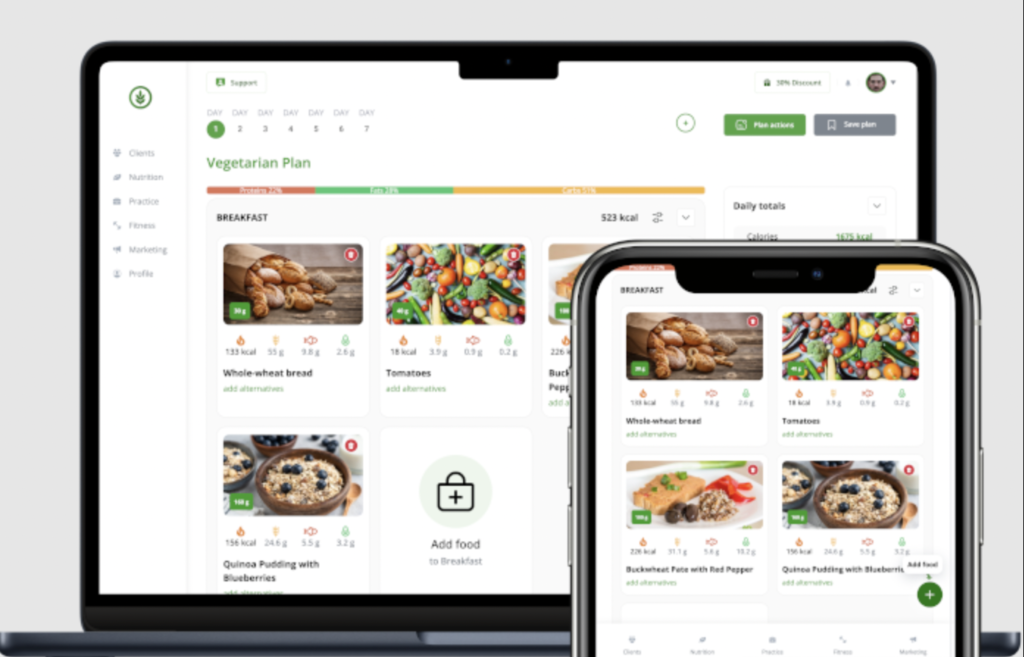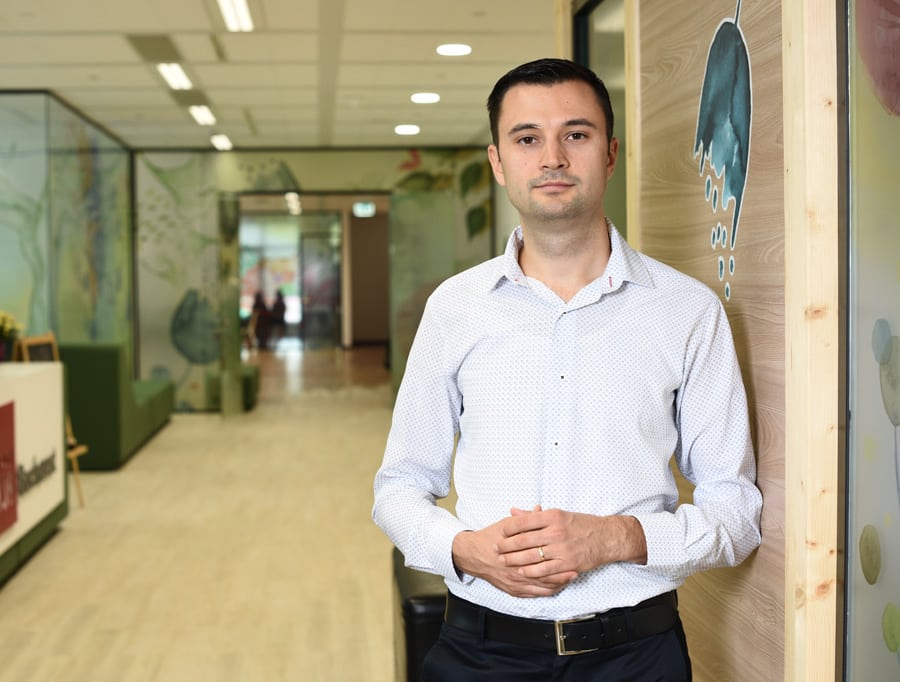Dietitians and nutritionists play an important world, especially in a modern world saturated with information, misinformation, and an array of heavily processed and fatty foods. Despite the global GDP increasing by 25 times over the past 50 years, it appears as if there hasn’t been rapid improvement in terms of human nutrition and health.
In 2016, a global report showed that over 39% of adults were categorized as overweight. Eight percent of global deaths were attributed to obesity.
With new diet trends and fads emerging and dying like flies, individuals battling with chronic health ailments may find it increasingly more overwhelming and difficult to get started on a health protocol.
Dietitians are highly educated and experienced health practitioners that are licensed to advise individuals on nutrition and diet. Abiding by the right plan for one’s body type can be potentially life-altering. Dietitians and nutritionists can also help patients combat severe food allergic issues, such as gluten intolerance.
More nutritionists are moving into the private practice space as well. The challenge in the nutrition field, as with any medical field, is the lack of software and technology that can help streamline their workflow and manage their patient load with ease. A tech entrepreneur by the name of Laurentiu Nicolae found inspiration for his software venture, NutritioApp through this problem. A software developer by trade, and husband to a medical doctor, he was constantly finding himself asking questions about “why wasn’t there an easier way to do this?” Like any business, you can’t expect a steady stream of clients without proper marketing or sales skills in place. NutritioApp acts like a reliable partner in helping dietitians and nutritionists solve modern problems with scaling, giving them the unlimited potential to grow their businesses.
Interviewer: Can you tell us about your journey into entrepreneurship? How did your background or past affect your present career?
Laurentiu: I had several jobs before I started my own business. I started as a web developer initially, creating websites and designing. Then, I started doing some HTML, CSS, and some developments because I had to. I started to like it because it paid pretty decently, especially for my level at that time. Then I did a lot of programming consulting. At some point, I started to play with ideas, like websites and applications that I could sell to other people. It was easy to build, but the hardest part is selling. As a developer, you get really excited about an idea and you just start building it. You think that it’s something that everybody will see value in.
Then you have the surprise of building something for a few months and putting it out on the market, only to find that no one is coming. I started to look into ways to get people to use that website or app, and that’s how I discovered marketing and fell in love with it. I started to learn how to do it, while simultaneously, doing parallel programming website development, and things like SEO. I started to learn more about copywriting, creating MVP (Minimum Viable Products), and selling; basically, any methods to bring people to the product. I tested several ideas in the past, but many of them failed.
For example, a few years ago I was in Africa with my wife and her medical doctor friends as volunteers. When we got home, we had the idea of building a platform for doctors working in remote areas. We built it, but we didn’t know how to market it, so it failed. I also tested several other ideas, most of them without success because we didn’t do proper validation. One day, I was talking with a friend of mine, who’s a medical doctor specializing in diabetes and nutritional diseases.
I asked her, “What do you use to work with your patients?” She answered, “Pen and paper.” That conversation inspired me to start doing some research and I realized there wasn’t a technology out there that helped nutrition specialists work with their patients— like to help create meal plans and so on.
That was enough to get me started building this new idea. My colleague and I built the first iteration of the app. We put it in front of a nutritionist, and at first, she remarked she couldn’t use it because it didn’t have certain functionalities.
We went through a few iterations fixing the things that she needed. Then, we got to the point where she could use it. From there, we brought on more nutritionists and dietitians by manually messaging them, collecting feedback, adding more people, and started doing some marketing. Today, we have paid users from all over the world. But we are still constantly collecting feedback from the people implementing it, and this is how we are growing.
Interviewer: Why nutrition? Given your background has nothing to do with it?

Laurentiu: My wife’s a doctor so I wanted to build something related to health since most of our acquaintances were in the medical field. We realized that there were many opportunities for innovation in this area. Software is more scarce in the medical world, as I said, many doctors are still using pen and paper.
Of course, the biggest drawback to this is that sometimes you need to explain what you are doing because people don’t get it very easily initially. Communication is of the essence, and how you explain what your product is to people is important. I would always recommend starting with the problem or pain point they’re looking to solve. If you start a conversation explaining the various features of your software tool, most of the time, you lose out on potential customers
Interviewer: What’s the most advantageous thing about having funding?Laurentiu: As a bootstrapped startup, the biggest challenge is that you move slower. Having money only helps to accelerate and to move much faster. Essentially, it allows you to save time because instead of building something or marketing something in one year, you can do it in three months. That’s the biggest thing, you save a lot of time. You test more ideas that are failing, and during that time you find the ones that are working.
Interviewer: What’s one pressing challenge in your industry? Do you have any ideas on how to resolve it?
Laurentiu: One of the biggest challenges is that dietitians don’t have high salaries. In fact, they are one of the most underpaid health workers. That’s a big issue because you can’t ask them to pay you a lot of money for the product that you are selling them.
That is one of our biggest value-adds. Essentially, our software helps private nutritionists get more clients because they’re able to handle more clients in the same amount of time.
We started to add marketing tools, such as helping them build landing pages or content strategies because most of them don’t know how to sell like an expert. Therefore, our software becomes a partner to them in both scaling their business and marketing simultaneously. It can be a really powerful business investment.
Interviewer: What is one thing that has helped you persist through the uncertainty and difficulty of starting and/or running a business?
Laurentiu: It’s mostly something personal. I don’t like being perceived as a person who starts many things and then quits them. It perhaps stems from the fear of failure. I generally do whatever it takes to make it work. On the business side, the fact that we have people that are paying us to use the software, and are sending us messages like, “You changed my life.” That’s something that’s very encouraging and it motivates you to keep going. Of course, you will also get messages from other people that don’t love your product. I find that when you have that balance between, this is something that I love using every day, and you see them using it, it makes you do more. Another thing is that, with nutrition, you can change the word.
Conclusion: Making Headways into Nutrition Software
Although the nutrition software space is not without competition, there still presents ample opportunities to help more private practitioners better serve their clients. Medical software allows for a single source of documentation, reducing weight and friction between the patient and the information (diet plans, videos, appointments) they need to follow to reach their goals. The best tools will aid a practitioner in every aspect of their practice— overcoming challenges in sales, appointment setting, and marketing. This is what NutritioApp intends to do, and with each iteration, it aims to become a better version for its customers.
